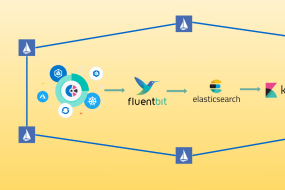
In the rapidly evolving landscape of modern business, staying ahead of the curve is imperative. Embracing innovative technologies is no longer an option, but a necessity. One such technological advancement that has revolutionized the way businesses operate is Cloud Hosting. In this comprehensive guide, we will delve deep into the world of Cloud Hosting, exploring its benefits and why businesses should consider adopting this game-changing solution.
Understanding Cloud Hosting: A Paradigm Shift
Before we embark on the journey of unraveling the myriad benefits of Cloud Hosting, let’s first demystify the concept itself. In essence, Cloud Hosting involves the use of virtual servers to host websites or applications, leveraging the power of a vast network of interconnected servers. This dynamic approach eliminates the need for physical infrastructure, providing businesses with unparalleled scalability, flexibility, and cost-effectiveness.
The Benefits of Cloud Hosting: Why Businesses Should Consider Cloud Solutions
Scalability: Scaling Without Constraints
In a traditional hosting environment, scaling resources can be a cumbersome and expensive endeavor. With Cloud Hosting, businesses can effortlessly scale up or down based on their evolving needs. This agility empowers companies to respond swiftly to changing market demands without the burden of investing in additional hardware.
Cost Efficiency: Optimize Your IT Budget
Cloud Hosting operates on a pay-as-you-go model, ensuring that businesses only pay for the resources they use. This eliminates the need for upfront capital expenditure on hardware and minimizes ongoing maintenance costs. The result? A more streamlined and cost-efficient IT infrastructure.
Reliability and Redundancy: Unwavering Uptime
Downtime can be a costly affair for any business. Cloud Hosting providers offer robust redundancy measures, ensuring that even in the rare event of server failures, your website or application remains accessible. This high level of reliability translates to enhanced user experience and trust.
Security: Fortified Digital Fortresses
Security is paramount in the digital age, and Cloud Hosting providers invest heavily in advanced security measures. From encryption protocols to multi-factor authentication, businesses can rest assured that their data is shielded from cyber threats.
Global Reach: Reach New Horizons
Cloud Hosting enables businesses to deploy their applications or websites across a global network of servers. This not only reduces latency for users in different geographical locations but also opens up new avenues for expansion into international markets.
Automated Backups and Disaster Recovery: Safeguarding Your Data
The safety of critical data is non-negotiable. Cloud Hosting providers offer automated backup and disaster recovery solutions, ensuring that even in the face of unforeseen events, your data remains intact and accessible.
Collaboration and Accessibility: Seamless Workflows
Cloud Hosting facilitates seamless collaboration among teams, regardless of their physical location. With cloud-based applications and file-sharing platforms, employees can work together in real-time, boosting productivity and innovation.
Environmental Sustainability: A Greener Future
Cloud Hosting minimizes the environmental impact associated with traditional data centers. By optimizing resource allocation and energy efficiency, businesses contribute to a more sustainable future.
Compliance and Regulations: Meeting Industry Standards
Cloud Hosting providers adhere to stringent industry-specific compliance requirements. This ensures that businesses in regulated sectors such as healthcare and finance can confidently leverage the benefits of the cloud while maintaining compliance.
Final Words: Embrace the Future with Cloud Hosting
In an era defined by rapid technological advancement, embracing innovative solutions is not just an option, but a strategic imperative. Cloud Hosting offers businesses a transformative approach to IT infrastructure, unlocking a realm of possibilities for growth, efficiency, and resilience.
Commonly Asked Questions
Q1: Is Cloud Hosting suitable for small businesses?
Absolutely. Cloud Hosting’s scalability and cost-effectiveness make it an ideal choice for small businesses looking to grow without the constraints of traditional hosting.
Q2: How does Cloud Hosting ensure data security?
Cloud Hosting providers employ a range of security measures, including encryption, firewalls, and regular security audits, to safeguard data from potential threats.
Q3: Can I migrate my existing website to Cloud Hosting?
Yes, most Cloud Hosting providers offer seamless migration services to ensure a smooth transition without any disruption to your online presence.
Q4: What happens in the event of a server failure in Cloud Hosting?
Cloud Hosting providers have redundant systems in place, ensuring that in the rare event of a server failure, your website or application is automatically switched to a backup server, minimizing downtime.
Q5: How can I monitor and manage my resources in a Cloud Hosting environment?
Most Cloud Hosting providers offer intuitive control panels and monitoring tools that allow you to easily manage and optimize your resources, giving you full control over your hosting environment.
Advertisement







